Đề Cương Ôn Tập Giữa Học Kì 2 Tiếng Anh Lớp 11 Global Success (19.03.2025)
Thầy Thắng
ĐỀ CƯƠNG LỚP 11
15
Ngày đăng: 19-03-2025 10:26:13
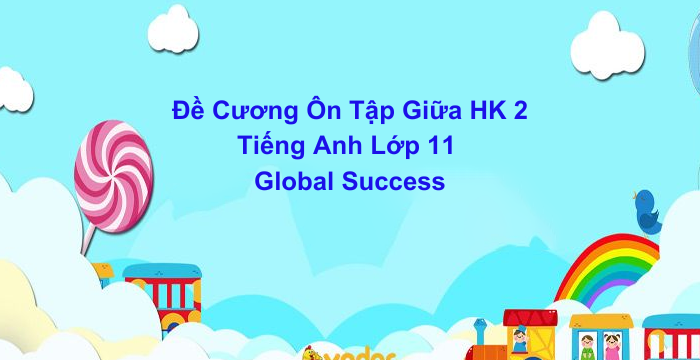
ÔN TẬP KIỂM TRA GIỮA KÌ 2
Trường THPT Nguyễn Thượng Hiền, TP Đà Nẵng, 2024 - 2025
I. VOCABULARY AND GRAMMAR
Mark the letter A, B, C, or D to indicate the word(s) CLOSEST in meaning to the underlined word(s) in each of the following sentences.
1. All buildings are kept in their original state. It’s a great place to explore.
A. change B. defeat C. discover D. broaden
2. My application for the scholarship was turned down because the grade transcript was insufficient.
A. cancelled B. postponed C. reduced D. rejected
3. Thomas is very reliable - if he says he'll do something, he'll do it.
A. mean B. independent C. decisive D. dependable
4. Parental pressure may negatively affect a teenager's ability to make independent choices.
A. encouragement B. relaxation C. stress D. disagreement
5. Motivation plays a significant role in driving teenagers towards independence.
A. Encouragement B. Freedom
C. Discouragement D. Organization
Mark the letter A, B, C, or D to indicate the word(s) OPPOSITE in meaning to the underlined word(s) in each of the following sentences.
1. We should increase efforts to preserve “ca tru” because nowadays there are very few “ca tru” musicians left.
A. protect B. defend C. destroy D. guard
2. We always appreciate feedback from friends, so if you have any questions or suggestions, please let us know.
A. depress B. welcome C. disregard D. consider
3. My parents also encourage me to take part-time jobs and pay me for doing certain chores around the house.
A. offer B. discourage C. impact D. imagine
4. The transition from childhood to adulthood can be a challenging time for many teenagers.
A. demanding B. unpleasant C. enjoyable D. flexible
5. Giving teenagers the freedom to make their own choices can help them become more confident.
A. reliable B. shy C. motivated D. mature
Mark the letter A, B, C, or D to indicate the correct answer to each of the following sentences.
1. The tour of the cave and grotto system is the main ________ for tourists in Phong Nha - Ke Bang National Park.
A. attractive B. attractiveness C. attract D. attraction
2. Hoi An Ancient Town is quite special among the heritage sites because it is in a good state of ________.
A. preserve B. preservation C. preservative D. preservatives
3. Marie Curie was the first woman ______________ two Nobel prizes.
A. who awarded B. to be awarded C. awarding D. that was awarding
4. The captain is the last person ______________ the sinking ship.
A. to leave B. to remain C. to wait D. to stop
5. Son Doong Cave is the largest cave __________ in Phong Nha-Ke Bang National Park.
A. to be discovered B. discovering C. discover D. which discovered
6. The travel agency offers a lot of destinations for tourists __________ from.
A. choosing B. choose C. to be choosing D. to choose
7. At 16, Mary left school __________ of her younger brothers.
A. take care B. taking care C. to take care D. to be taken care
8. We have a duty to safeguard our cultural heritage for future ___________ and to ensure that it is not lost or destroyed through neglect or willful destruction.
A. people B. generations C. staff D. teenagers
9. The clubs will organise training for students who want to learn folk songs, a ___________musical instrument, or folk dancing.
A. traditional B. tradition C. traditionally D. traditions
10. The area near the Royal palace gates was crowded _________tourists
A. from B. with C. to D. at
11. You'll learn about urban lifestyles and traditions from the 15th to the 19th century and will see examples of ancient ____________.
A. architecture B. architect C. architectural D. architectonic
12.__________ is the study of the geographical regions of the planet as well as their inhabitants, including people, plants, and animals.
A. Science B. Geography C. History D. Technology
13. They _________ sacrifices so that their only child could have a good education.
A. made B. did C. provided D. lent
14. In Vietnamese schools, English, mathematics, and literature are three ________ subjects, which are compulsory in many important national examinations.
A. core B. part C. center D. middle
15. In England schooling is compulsory _________ all children from the age of 5 to 16.
A. with B. for C. to D. over
16. More and more young people prefer __________education because they like to learn practical skills.
A. university B. college C. vocational D. higher
17. Many young people find it hard to get a job immediately after__________.
A. university B. school C. class D. graduation
18. ___________ only three hours, I can hardly focus on my work.
A. Having slept B. was slept C. slept D. sleeping
19. Tom was accused ___________ some top secret documents.
A. to steal B. of having stolen C. for stealing D. to have stolen
20. __________ with my teacher helped me understand the lesson better.
A. Had talked B. Having talked C. Have talked D. Has talked
21. Having __________ carefully for the exam, she could answer all the questions easily.
A. been revised B. had revised C. revise D. revised
22. He completed a __________ cooking course at this vocational school before he became a restaurant cook.
A. business B. professional C. formal D. responsible
23. At the education fair, we collected a lot of __________ from different institutions about their training programmes.
A. answers B. questions C. brochures D. donations
24. Despite their financial difficulties, my parents __________ to pay for my university education.
A. disagreed B. approved C. refused D. managed
25. Despite my parents' disagreement, I'm ________ to drop out of university and establish my own business.
A. determined B. confident C. successful D. energetic
26. If you choose to study abroad, you have to live __________ from home.
A. on B. away C. in D. up
27. Self-study can make learners more confident ________ their abilities to complete tasks independently
A. at B. away C. in D. for
28. _________ asked the policeman a lot of questions.
A. It is the pedestrian whom B. It is the pedestrian what
C. It was the pedestrian who D. It was the pedestrian when
29. It was Thomas _________ to help us.
A. comes B. that comes C. to come D. who came
30. __________ my parents gave me a new computer.
A. It was on my birthday when B. It was my birthday on that
C. It was my birthday that D. It was on my birthday that
Mark the letter A, B, C, or D to indicate the underlined part that needs correction in each of the following questions.
1. Thanks to donations, local authorities have enough money to keep the old buildings in their origin state.
2. It was at the age of 25 who he bought two houses at 25 Pasteur Street in HCM city.
3. My students are not so good at Mathematics, but they study English good.
4. Having deciding on the topic of the presentation, he started finding relevant information for it.
II. SPEAKING
Mark the letter A, B, C, or D to indicate the sentence that best completes each of the following exchanges.
1. Sarah and Liam are talking together.
Sarah: "Would you like to join our trip to Phong Nha Cave this summer?"
Liam: " ______________”
A. Do you think I would? B. I would not thank you.
C. Yes, you are a good friend. D. Yes, I would love to, thanks.
2. Khoa: Mr. Smith, could I meet you on Friday afternoon after 4:30?
Mr. Smith: OK, __________ at around five.
A. I’d like to B. may I see you C. I’ll see you D. I can meet
3. Lan: Good afternoon. Is Dr. Hoa in her office today?
Receptionist: Sorry, she’s just left for an important meeting. She’ll __________ to see you tomorrow morning.
A. sound good B. suit you C. be convenient D. be available
4. Tom and John are talking together.
Tom: " How did you get to Hoi An Ancient Town in Quang Nam?
John:" _____________”
A. I came here last night. B. I came here by train.
C. The train is so crowded D. Is it far from here?
5. David and his mom are talking to each other.
David: "Mom, I've received an offer for a summer internship in Singapore!”
David’s mom: “___________________”
A. Really? Good luck! B. Oh, that's great! Congratulations!
C. I couldn't agree more. D. Oh, I'm sorry to hear that.
III. READING:
Read the text again and choose the best option to complete each blank:
ww
In November 1989, the United Nations Convention on the Rights of the Child (UNCRC) was _________. The Convention applies to all children and young people aged 17 and below. It states that every child has the right to be alive and be the __________ person they can be. It gives children a set of basic rights ____________ include their right to education, health, rest, and play. It also says that governments have to do everything they can to ________ and support children and young people. _______, every country has laws about what children and young people can do at different ages. However, it can be very confusing knowing when you are legally able to do certain things.
1. A. create B. creative C. created D. creation
2. A. well B. good C. better D. best
3. A. that B. who C. whose D. this
4. A. harm B. protect C. kill D. damage
5. A. However B. Moreover C. As a result D. So
Read the text, and Choose the correct answers.
Every year 30,000 young people in the UK can learn what it is like to run their own business before leaving school. These 15-19 years olds take part in a scheme called Young Enterprise. It is organized by the UK's largest business education charity, which was founded in 1962.
Young Enterprise's objective is 'to inspire and equip young people to learn and succeed through enterprise.' Under the guidance of business mentors, who are volunteers from some of the country's most well-known companies, each Young Enterprise group runs its own real company for a year.
It is up to the group to name the company, assign roles like managing director, marketing manager and accountant, decide on a product or service, work out how to finance and market it, and finally sell it. A year later, the business is closed, hopefully with a profit.
Young Enterprise gives its participants the opportunity to develop valuable skills such as communication, teamwork and decision-making. It also gives them an understanding of how a real business works. They will be able to use this knowledge and experience in the future.
Young Enterprise sounds like a good thing, doesn't it? But does it really work? According to research in 2012, if you take part in Young Enterprise at school, you'll be:
- almost twice as likely to have your own business and employ people
- more likely to have higher earnings
- more likely to be successful in your career
- more likely to be innovative and high-tech
So, if you could join a Young Enterprise group in your school, would you?
1. Who is Young Enterprise for?
A. Teenagers who don't want to go to school
B. Students at university
C. Teenagers in the last few years of school
D. Students want to go to university
2. What is the aim of the Young Enterprise charity?
A. To make money
B. To set up big companies
C. To educate young people about business
D. To spend money
3. Who are the mentors?
A. Teachers B. Business people C. Students D. Experts
4. Who makes the decisions in each group?
A. The mentor
B. The managing director
C. All the members
D. The marketing manager
5. What skill does Young Enterprise teach you?
A. How to work with other people
B How to work on your own
C. How to write a curriculum vitae for a future job
D. How to close a company
6. Choose the best title for the text.
A. Learning by watching
B. Learning by talking
C. Learning by doing
D. Learning by singing
7. What effect can participate in Young Enterprise NOT have on your future job?
A. You'll probably be a better employee.
B. You'll probably earn more money.
C. You'll probably be able to continue the business you started with the scheme.
D. You'll probably be a better speaker.
IV. TỰ LUẬN: Rewrite the sentences, using words provided in the brackets:
Rewrite the sentences replacing the underlined relative clauses with to-infinitive clauses.
1. The last person who leaves the room must turn off the lights.
⟶ ………………………………………………………
2. The most interesting thing that you can do in Ha Long is to go on a boat tour around the islands.
⟶ ………………………………………………………
3. The first job applicant that we will interview today doesn’t have any experience.
⟶ ………………………………………………………
Combine the sentences using to-infinitive clauses.
1. Minh left the show very early. He was the first person who did so.
⟶ Minh ………………………………………
2. We went to the Mekong River Delta. We wanted to watch live performances of don ca tai tu there.
⟶ We ……………………………………..
3. Mrs. Hoa joined the walking holiday. She was the oldest person who did so.
⟶ Mrs. Hoa …………………………………
Rewrite these sentences using perfect participle clauses or perfect gerunds. Add commas where necessary.
1. My mother didn’t go to university. She regretted it.
⟶ My mother regretted …………………………………….
2. My brother wrote his first travel book after he had returned from Japan.
⟶ Having ………………………………
3. He didn’t keep his promise. He apologised for that.
⟶He apologised for ………………………………………………….
4. Because I had spent the entire day cleaning up my room, I needed to take a shower and have a rest.
⟶ Having ……………………………………………
Rewrite the sentences using the cleft sentences focusing on the underlined parts:
1. The earthquake destroyed everything two years ago.
⟶ ……………………………………………
2. Viet decided to start using a time-management app last week.
⟶ …………………………………………………………
3. Students can download free materials in many subjects from the Internet.
⟶ ………………………………………………………………
4. The children played football in the garden yesterday afternoon.
⟶ …………………………………………………
5. That company will send a large number of textbooks to poor children in this area.
⟶ ………………………………………………………………
-----------THE END ----------
Giải đáp mọi thắc mắc trong đề vui lòng liên hệ Zalo: 034 8371 758
Theo dõi fanpage để cập nhật nhanh các bài tập và đề kiểm tra mới nhất.
https://www.facebook.com/profile.php?id=61555984765050
Bài Viết Liên Quan
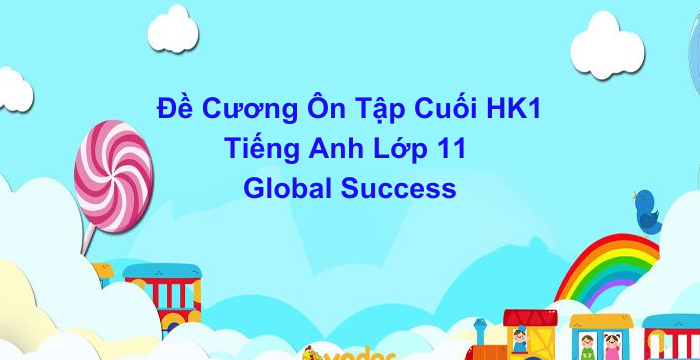
Đề Cương Ôn Tập Cuối Học Kì 1 Tiếng Anh Lớp 11 Global Success (20.12.2025)

Đề Cương Ôn Tập Cuối Học Kì 1 Tiếng Anh Lớp 11 Global Success (19.12.2025)

Đề Cương Ôn Tập Cuối Học Kì 1 Tiếng Anh Lớp 11 Global Success (6.12.2025)
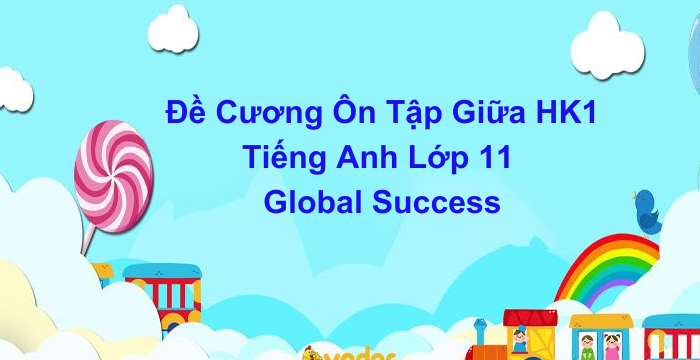
Đề Cương Ôn Tập Giữa Học Kì 1 Tiếng Anh Lớp 11 Global Success (7.11.2025)

Đề Cương Ôn Tập Giữa Học Kì 1 Tiếng Anh Lớp 11 Global Success (3.11.2025)

Đề Cương Ôn Tập Giữa Học Kì 1 Tiếng Anh Lớp 11 Global Success (3.11.2025)

Đề Cương Ôn Tập Cuối Học Kì 2 Tiếng Anh Lớp 11 Global Success (14.05.2025)

Đề Cương Ôn Tập Cuối Học Kì 2 Tiếng Anh Lớp 11 Global Success (18.04.2025)

Đề Cương Ôn Tập Cuối Học Kì 2 Tiếng Anh Lớp 11 Global Success (18.04.2025)

Đề Cương Ôn Tập Cuối Học Kì 2 Tiếng Anh Lớp 11 Global Success (14.04.2025)

Đề Cương Ôn Tập Cuối Học Kì 2 Tiếng Anh Lớp 11 Global Success (11.04.2025)

Đề Cương Ôn Tập Giữa Học Kì 2 Tiếng Anh Lớp 11 Global Success (26.03.2025)

Đề Cương Ôn Tập Giữa Học Kì 2 Tiếng Anh Lớp 11 Global Success (24.03.2025)

Đề Cương Ôn Tập Giữa Học Kì 2 Tiếng Anh Lớp 11 Global Success (19.03.2025)

Đề Cương Ôn Tập Giữa Học Kì 2 Tiếng Anh Lớp 11 Global Success (19.03.2025)

Đề Cương Ôn Tập Cuối Học Kì 1 Tiếng Anh Lớp 11 Global Success (03.01.2025)

Đề Cương Ôn Tập Cuối Học Kì 1 Tiếng Anh Lớp 11 Global Success (15.12.2024)

Đề Cương Ôn Tập Cuối Học Kì 1 Tiếng Anh Lớp 11 Global Success (15.12.2024)

Đề Cương Ôn Tập Cuối Học Kì 1 Tiếng Anh Lớp 11 Global Success (14.12.2024)

Đề Cương Ôn Tập Cuối Học Kì 1 Tiếng Anh Lớp 11 Global Success (12.12.2024)

Đề Cương Ôn Tập Giữa Học Kì 1 Tiếng Anh Lớp 11 Global Success (07.11.2024)

Đề Cương Ôn Tập Giữa Học Kì 1 Tiếng Anh Lớp 11 Global Success (29.10.2024)

Đề Cương Ôn Tập Giữa Học Kì 1 Tiếng Anh Lớp 11 Global Success (26.10.2024)

Đề Cương Ôn Tập Cuối Học Kì 1 Tiếng Anh Lớp 11 Global Success (06.06.2024)

Đề Cương Ôn Tập Cuối Học Kì 1 Tiếng Anh Lớp 11 Global Success (06.06.2024)

Đề Cương Ôn Tập Cuối Học Kì 1 Tiếng Anh Lớp 11 Global Success (06.06.2024)

Đề Cương Ôn Tập Cuối Học Kì 1 Tiếng Anh Lớp 11 Global Success (06.06.2024)

Đề Cương Ôn Tập Cuối Học Kì 1 Tiếng Anh Lớp 11 Global Success (06.06.2024)

Đề Cương Ôn Tập Giữa Học Kì 1 Tiếng Anh Lớp 11 Global Success (31.05.2024)

Đề Cương Ôn Tập Giữa Học Kì 1 Tiếng Anh Lớp 11 Global Success (31.05.2024)

Đề Cương Ôn Tập Giữa Học Kì 1 Tiếng Anh Lớp 11 Global Success (31.05.2024)

Đề Cương Ôn Tập Giữa Học Kì 1 Tiếng Anh Lớp 11 Global Success (31.05.2024)

Đề Cương Ôn Tập Giữa Học Kì 1 Tiếng Anh Lớp 11 Global Success (31.05.2024)

Đề Cương Ôn Tập Giữa Học Kì 1 Tiếng Anh Lớp 11 Global Success (31.05.2024)
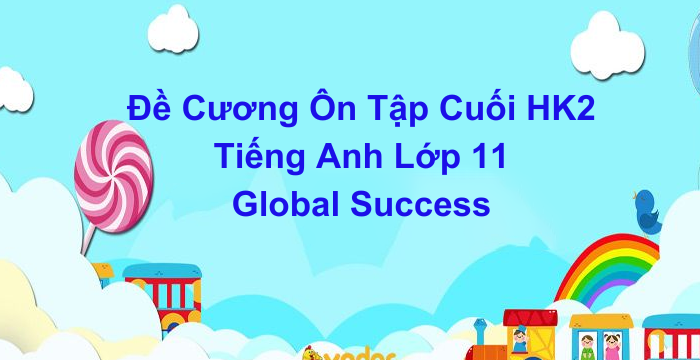
Đề Cương Ôn Tập Cuối Học Kì 2 Tiếng Anh Lớp 11 Global Success (28.04.2024)

Đề Cương Ôn Tập Cuối Học Kì 2 Tiếng Anh Lớp 11 Global Success (24.04.2024)

Đề Cương Ôn Tập Cuối Học Kì 2 Tiếng Anh Lớp 11 Global Success (21.04.2024)

Đề Cương Ôn Tập Cuối Học Kì 2 Tiếng Anh Lớp 11 Global Success (17.04.2024)

Đề Cương Ôn Tập Cuối Học Kì 2 Tiếng Anh Lớp 11 Global Success (12.04.2024).

Đề Cương Ôn Tập Cuối Học Kì 2 Tiếng Anh Lớp 11 Global Success (12.04.2024)
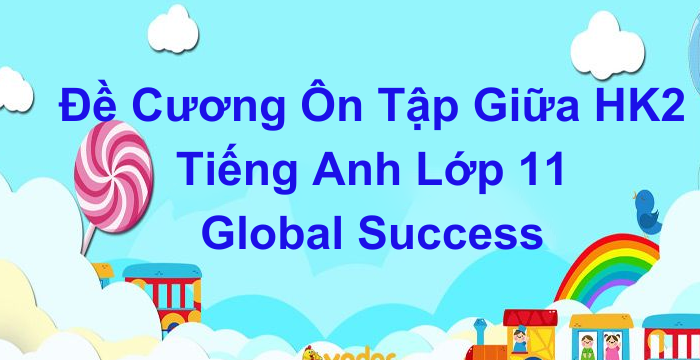
Đề Cương Ôn Tập Giữa Học Kì 2 Tiếng Anh Lớp 11 Global Success (20.03.2024)

Đề Cương Ôn Tập Giữa Học Kì 2 Tiếng Anh Lớp 11 Global Success (18.03.2024)

Đề Cương Ôn Tập Giữa Học Kì 2 Tiếng Anh Lớp 11 Global Success 08.03.2024

Đề Cương Ôn Tập Giữa Học Kì 2 Tiếng Anh Lớp 11 Global Success 07.03.2024

Đề Cương Ôn Tập Giữa Học Kì 2 Tiếng Anh Lớp 11 Global Success 29.02.2024

Bài Đăng Gần Đây
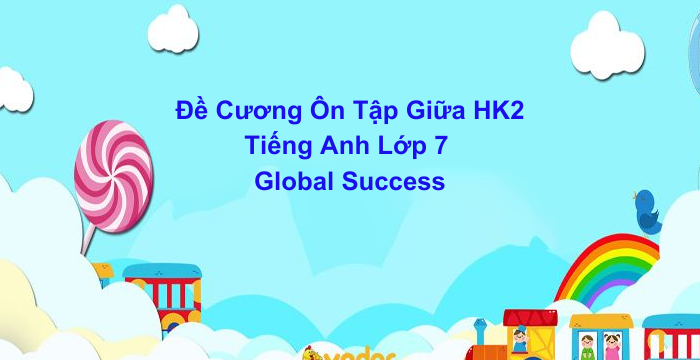
Đề Cương Ôn Tập Giữa Học Kì 2 Tiếng Anh Lớp 7 Global Success (24.02.2026)
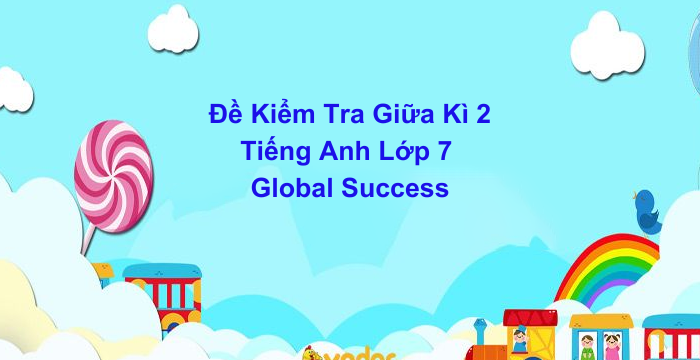
Đề Kiểm Tra Giữa Kì 2 Tiếng Anh Lớp 7 Global Success (3.2.2026)
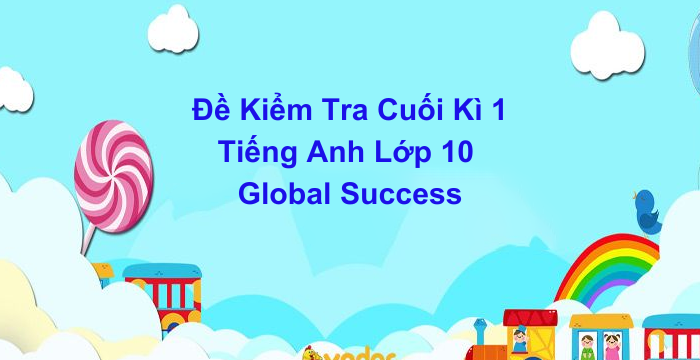
Đề Kiểm Tra Cuối Kì 1 Tiếng Anh Lớp 10 Global Success (02.01.2026)
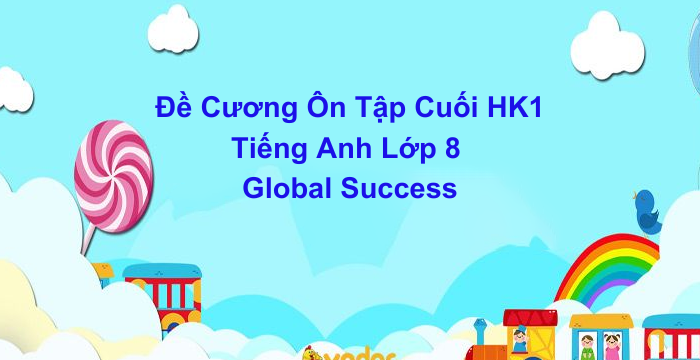
Đề Cương Ôn Tập Cuối Học Kì 1 Tiếng Anh Lớp 8 Global Success (30.12.2025)

